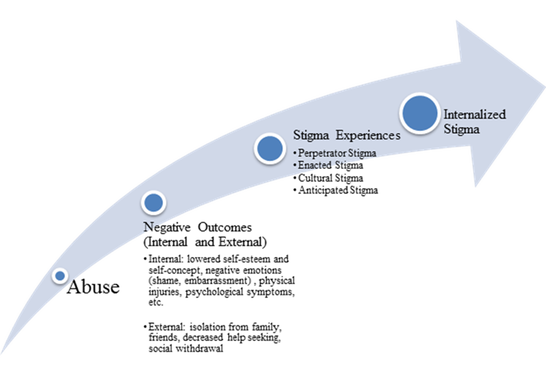|
By Allison Crowe, See the Triumph Co-Founder
Our goal at See the Triumph is to combat the stigma that surrounds intimate partner violence. One of the most dangerous types of stigma, unfortunately, is stigma that a person places on oneself, sometimes referred to as internalized stigma. How is it that being abused can lead to internalized stigma? Abuse, as we all know, leads to a variety of negative outcomes. These can be internal outcomes such as lowered self-esteem, feelings of shame, embarrassment. It also leads to physical injuries, or mental health symptoms, to name a few. External negative outcomes also occur because of IPV. These might be isolation from the survivor’s family or support network, social withdrawal (either because the perpetrator controls the victim’s behavior or because the victim no longer wishes to socialize with others who might be suspicious, or because doing so might put the victim at risk for a physical attack from his or her abuser). The victim might also not believe that he or she is deserving of support or help, or might be putting his or her safety at risk by seeking help for the abuse. These negative outcomes can lead to a stigmatizing experience. For example, if a victim has lowered self-esteem, she or he may then anticipate that she/he will be met with stigma if she/he were to try and seek help or support for someone. When we don’t feel good about ourselves or ability to do something successfully, we begin to doubt that good things can come, that we can be successful at something, or in this case that we will be met with a supportive, helpful response. This stigma then gets internalized by the victim so that he or she believes the negative messages from others/self in a deeper way. The model pictured above, IPV Internalized Stigma Model (Murray & Crowe, 2016) is just one way that we believe internalized stigma occurs. There are most likely other processes that can take place that result in the stigma being internalized. But based on what we have heard from survivors in our study, as well as what we have read from others in the professional literature on internalized stigma, this model is one way to describe the process. We urge all of you to think about this concept and fight against stigma that is internalized. Stigma must be overcome in order to erase intimate partner violence in our society! Comments are closed.
|
Archives
April 2024
CategoriesAll About Intimate Partner Violence About Intimate Partner Violence Advocacy Ambassadors Children Churches College Campuses Cultural Issues Domestic Violence Awareness Month Financial Recovery How To Help A Friend Human Rights Human-rights Immigrants International Media Overcoming Past Abuse Overcoming-past-abuse Parenting Prevention Resources For Survivors Safe Relationships Following Abuse Schools Selfcare Self-care Sexual Assault Sexuality Social Justice Social-justice Stigma Supporting Survivors Survivor Quotes Survivor-quotes Survivor Stories Teen Dating Violence Trafficking Transformative-approaches |
Search by typing & pressing enter



 RSS Feed
RSS Feed